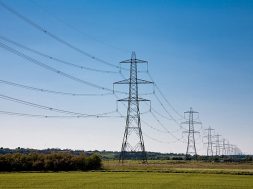
G20 – ENERGY TRANSITION WORKING GROUP MEETING – GANDHINAGAR; Side event on ‘Diversifying Renewables & Critical Minerals Supply Chains to Advance Energy Transition’ tomorrow – EQ Mag
As part of the second Energy Transition Working Group meeting of India’s G20 Presidency, the Ministry of New and Renewable Energy, the Ministry of Mines and the Ministry of Power, Government of India, will host an official side event, ‘Diversifying Renewables & Critical Minerals Supply Chains to Advance Energy Transition’ tomorrow in Gandhinagar, Gujarat. The event, supported by the Asian Development Bank (ADB) and the Council on Energy, Environment and Water (CEEW), will focus on diversifying and securing renewable energy (RE) and critical mineral supply chains for energy transitions, including promoting circularity in value chains.
Mr Bhupinder Singh Bhalla, Secretary, Ministry of New and Renewable Energy, and Mr Vivek Bharadwaj, Secretary, Ministry of Mines, will deliver the opening address and set the context for the event that will convene the world’s leading experts in the sector from industry, academia and policy-making.
This will be followed by the release of two reports – CEEW’s report ‘Developing Resilient Renewable Energy Supply Chains for Global Clean Energy Transition’, and CEEW, International Energy Agency (IEA), Institute of Transportation Studies UC Davis and World Resources Institute India (WRII)’s report ‘Addressing Vulnerabilities in the Supply Chain of Critical Minerals’. The event will feature two panel discussions on securing renewable energy supply chains, and strengthening the mineral value chain by increasing production and infusing circularity. Luminaries speaking at the event include Energy Transition Working Group Chair Mr Alok Kumar, Secretary, Ministry of Power, Mr Kenichi Yokoyama, Director General, South Asia Regional Dept, Asian Development Bank (ADB), Ms Mamta Verma, Principal Secretary, Energy & Petrochemicals, Government of Gujarat, Dr Brian Motherway, Head, Energy Efficiency Division, International Energy Agency (IEA), Dr Ajay Mathur, Director General, International Solar Alliance (ISA), Ms Gauri Singh, Deputy Director General, IRENA, Mr Rajarshi Gupta, Managing Director, ONGC Videsh Ltd, Mr Rajiv Ranjan Mishra, Co-Chair, CII National Committee on Power, and MD, Apraava Energy Ltd, and Mr Mayank Choudhary, Unit Head for South Asia, Private Sector Operations, ADB, Dr V Anbumozhi, Director, Research Strategy and Innovation, Economic Research Institute for ASEAN and East Asia (ERIA) and Dr Pradeep Tharakan, Director, Energy Transition, ADB.
Global economic development coincides with a shrinking carbon space, intensifying climate risks, and rising geopolitical adversities. For the world to achieve a net-zero future, solar and wind power capacities must grow 17 and 10 times, respectively, between 2021 and 2050. And annual battery deployments need to increase 50 times and 28 times respectively to enable the transition of the power and mobility sectors. A risk-proof transition to renewables would only be possible if countries are able to secure access to uninterrupted and affordable supply chains of RE technologies like solar, wind, batteries and hydrogen. India already ranks fourth in the world in terms of installed capacity of renewable energy and is fast accelerating to meet its net zero by 2070 target.
However, many minerals used to build clean energy technologies are rare, and often concentrated in a few geographies. One major advantage of mineral-dependent technologies is their ability to be reused and recycled continuously. This could help maintain a reliable supply of these materials through appropriate technologies and infrastructure. Promoting circularity will also help strengthen the mineral value chains. In its G20 year, the principles of India’s Mission LiFE (Lifestyle for Environment) can promote circularity in manufacturing and use of these minerals for a transition to renewables.
The closing address at the event will be given by Mr Dinesh D Jagdale, Joint Secretary, Ministry of New and Renewable Energy, India and Dr Veena Kumari D, Joint Secretary, Ministry of Mines, India.














